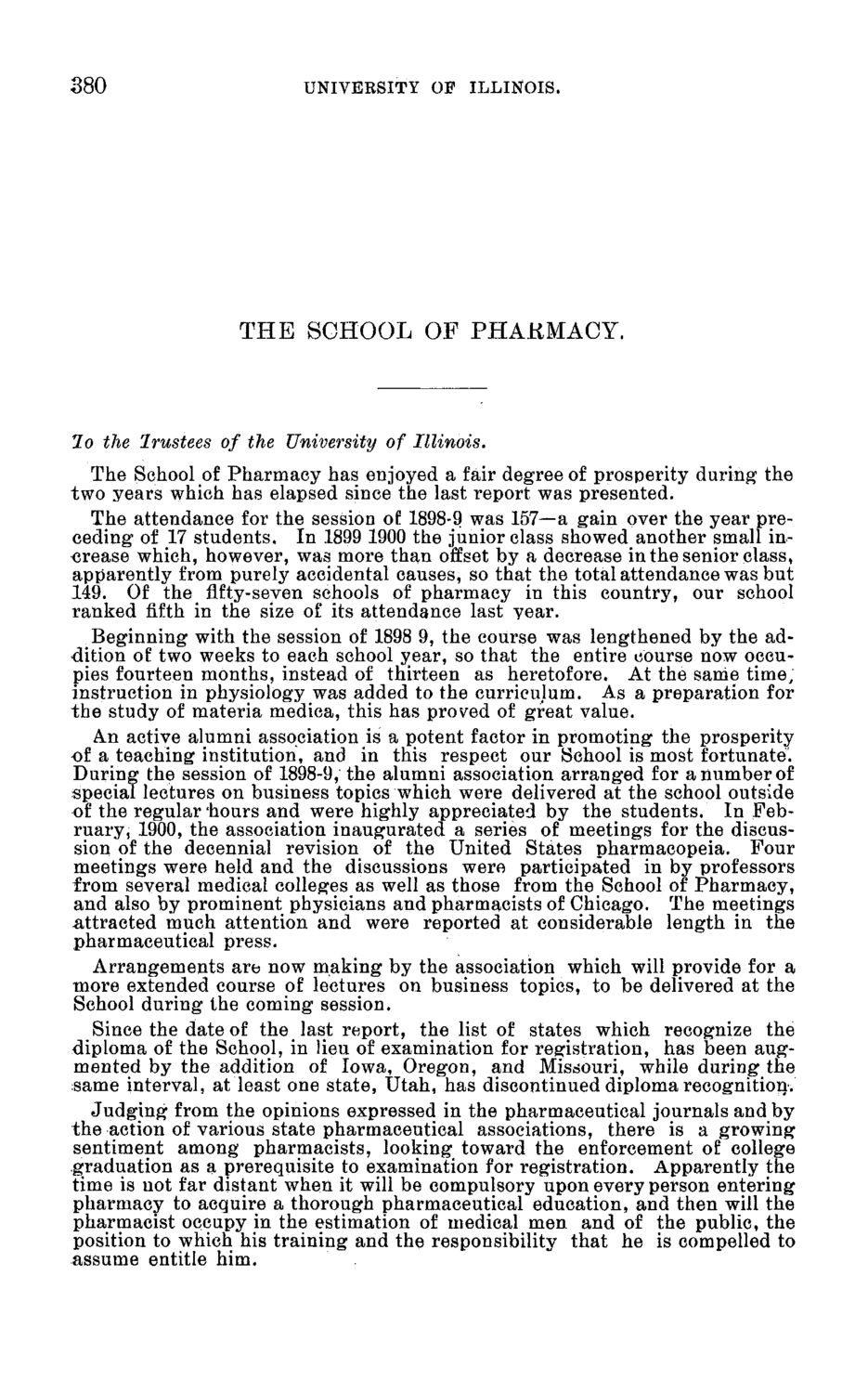| |
| |
Caption: Board of Trustees Minutes - 1900
This is a reduced-resolution page image for fast online browsing.

EXTRACTED TEXT FROM PAGE:
380 UNIVERSITY OF ILLINOIS. THE SCHOOL OF PHARMACY. Jo the Trustees of the University of Illinois. The School of Pharmacy has enjoyed a fair degree of prosperity during the two years which has elapsed since the last report was presented. The attendance for the session of 1898-9 was 157—a gain over the year preceding of 17 students. In 1899 1900 the junior class showed another small increase which, however, was more than offset by a decrease in the senior class, apparently from purely accidental causes, so that the total attendance was but 149. Of the fifty-seven schools of pharmacy in this country, our school ranked fifth in the size of its attendance last year. Beginning with the session of 1898 9, the course was lengthened by the addition of two weeks to each school year, so that the entire course now occupies fourteen months, instead of thirteen as heretofore. At the same time, instruction in physiology was added to the curriculum. As a preparation for the study of materia medica, this has proved of great value. An active alumni association is a potent factor in promoting the prosperity of a teaching institution, and in this respect our School is most fortunate. During the session of 1898-9, the alumni association arranged for a number of special lectures on business topics which were delivered at the school outside of the regular'hours and were highly appreciated by the students. In February, 1900, the association inaugurated a series of meetings for the discussion of the decennial revision of the United States pharmacopeia. Four meetings were held and the discussions were participated in by professors from several medical colleges as well as those from the School of Pharmacy, and also by prominent physicians and pharmacists of Chicago. The meetings attracted much attention and were reported at considerable length in the pharmaceutical press. Arrangements are now making by the association which will provide for a more extended course of lectures on business topics, to be delivered at the School during the coming session. Since the date of the last report, the list of states which recognize the diploma of the School, in lieu of examination for registration, has been augmented by the addition of Iowa, Oregon, and Missouri, while during the same interval, at least one state, Utah, has discontinued diploma recognition'. Judging from the opinions expressed in the pharmaceutical journals and by the action of various state pharmaceutical associations, there is a growing sentiment among pharmacists, looking toward the enforcement of college graduation as a prerequisite to examination for registration. Apparently the time is not far distant when it will be compulsory upon every person entering pharmacy to acquire a thorough pharmaceutical education, and then will the pharmacist occupy in the estimation of medical men and of the public, the position to which his training and the responsibility that he is compelled to assume entitle him.
| |